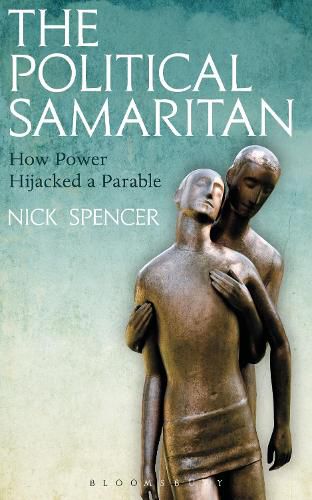Readings Newsletter
Become a Readings Member to make your shopping experience even easier.
Sign in or sign up for free!
You’re not far away from qualifying for FREE standard shipping within Australia
You’ve qualified for FREE standard shipping within Australia
The cart is loading…






Nick Spencer sets out to rescue an innocent parable, mugged for political ends, ignored by passers-by, and then left for half-dead at the edge of the English language.
The parable of the Good Samaritan has been used by almost every major British politician over recent years - from Theresa May and Tony Blair to Margaret Thatcher and Jeremy Corbyn. But they don’t all use it to say the same thing.
Discussing the various figures who’ve politicised the Samaritan, Spencer - described by the Economist as ‘like a prophet crying in the post-modern wilderness’ - explains why and how Jesus’ famous parable got mixed up in politics. From abolitionists to warmongers, prime ministers to activists such as Dr Martin Luther King, he uncovers the reasons for the parable’s popularity - and then asks the killer question: who gets it right?
If the Good Samaritan has been dragged on to the political stage, whose side is he on?
$9.00 standard shipping within Australia
FREE standard shipping within Australia for orders over $100.00
Express & International shipping calculated at checkout
Nick Spencer sets out to rescue an innocent parable, mugged for political ends, ignored by passers-by, and then left for half-dead at the edge of the English language.
The parable of the Good Samaritan has been used by almost every major British politician over recent years - from Theresa May and Tony Blair to Margaret Thatcher and Jeremy Corbyn. But they don’t all use it to say the same thing.
Discussing the various figures who’ve politicised the Samaritan, Spencer - described by the Economist as ‘like a prophet crying in the post-modern wilderness’ - explains why and how Jesus’ famous parable got mixed up in politics. From abolitionists to warmongers, prime ministers to activists such as Dr Martin Luther King, he uncovers the reasons for the parable’s popularity - and then asks the killer question: who gets it right?
If the Good Samaritan has been dragged on to the political stage, whose side is he on?